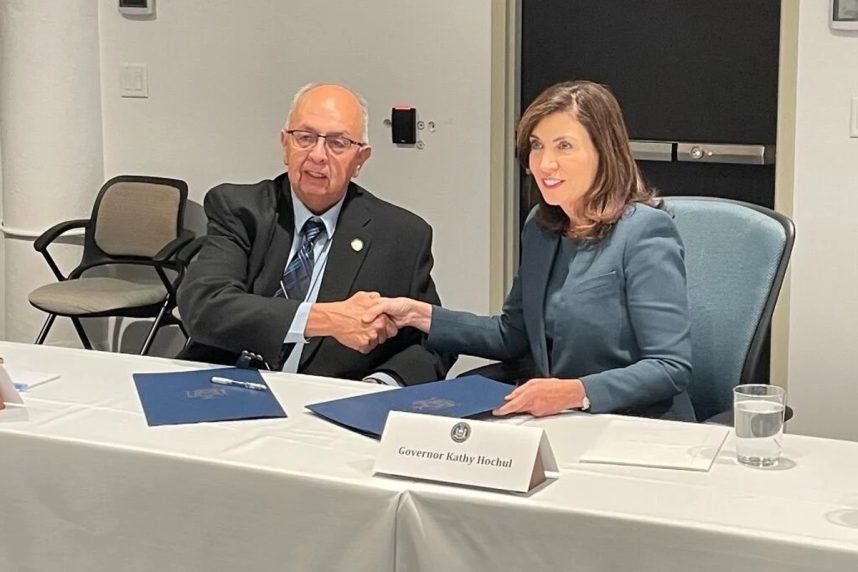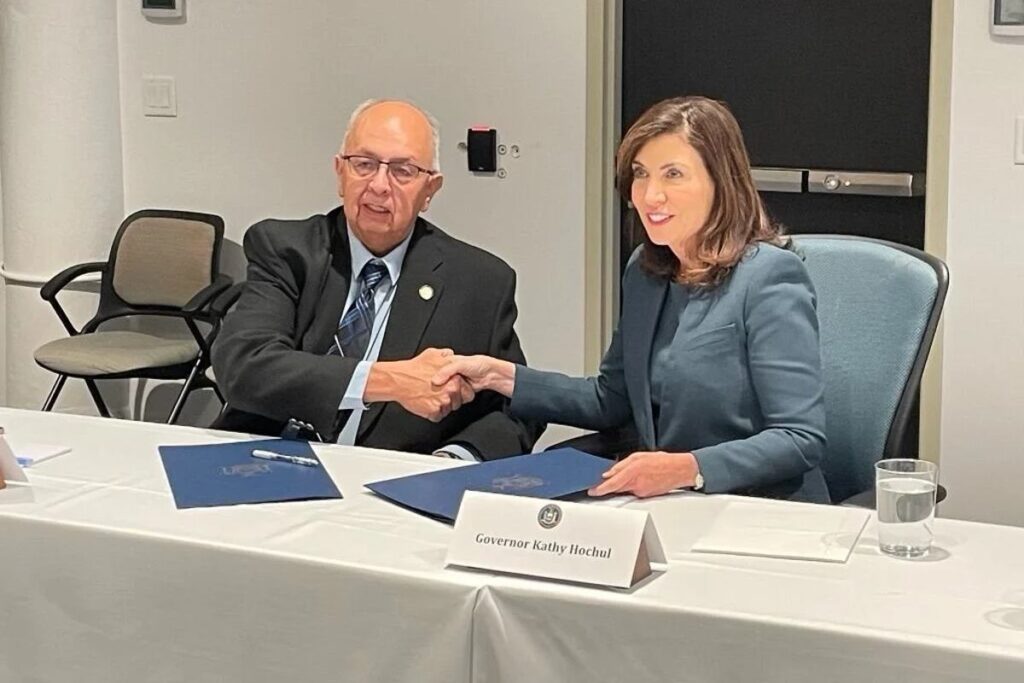Posted on: June 11, 2024, 10:01h.
Last updated on: June 11, 2024, 10:08h.
Seneca Nation officials say their negotiations with New York Gov. Kathy Hochul (D) have been “painstaking, frustrating, and disappointing.”

There has been little progress made since the tribe’s Class III gaming compact expired in December 2022. The revenue-sharing agreement gives the tribe the exclusive rights to slot machines and live dealer table games west of State Route 14 in upstate New York.
In exchange for the gaming privileges, the Seneca casinos direct 25% of their slot win to Albany. The tribe retains all of the table game revenue.
The tribe has been directing the 25% slot share to an escrow account since Jan. 1, 2023. Hochul and her aides have been trying to reach new terms with the tribe, but a compromise isn’t imminent.
The Senecas are seeking a reduced slot tax after New York authorized four upstate commercial casinos east of the tribe’s exclusivity zone that have Las Vegas slots and table games, plus sports betting. The tribe is additionally asking for authorization to open a casino in the Rochester area, something that has caused much pushback from city officials and the state lawmakers who represent the city.
Talks Slow to Materialize
Political insiders suggest Hochul is in no rush to sign a new Class III gaming compact with the tribe because it will presumably be an agreement that sees the state collect less money from Seneca Niagara Resort & Casino, Seneca Allegany Resort & Casino, and Seneca Buffalo Creek Casino. The governor’s pace has frustrated tribal leaders.
The pace and progress of the process so far, while detailed and deliberate, have been painstaking, frustrating, and disappointing,” Seneca Nation President Rickey Armstrong told WBEN. “Regardless, we will continue to focus on and work toward a fair new compact that adequately addresses our rights and concerns in the context of today’s growing and changing gaming market.”
While the state might be fine to proceed as normal without the Seneca casino money, the slot tax that goes back to the local towns and municipalities where the tribal resorts operate is causing funding gaps. The local share payments are also being held in escrow as the compact talks endure. The City of Buffalo, for example, is owed $5.5 million.
The municipalities that rely on that funding from the compact are sitting in escrow. Those small municipalities that I represent are not getting the payouts as a result of this deadlock,” said state Sen. George Borrello (R-Allegany).
Borrello’s 57th State Senate District includes all of Allegany, Cattaraugus, and Chautauqua counties, and parts of Livingston County, on the southwesternmost part of the upstate area.
Extension Likely
The most recent extension of the expired Class III gaming compact runs through the end of the month. The terms of the agreement require the document to be extended if new terms are not reached in time.
Any agreement Hochul strikes with the tribe requires the approval of the New York State Legislature. The lawmaking body adjourned for 2024 on Monday, though Hochul could presumably call a special session for the state Senate and General Assembly to ratify a gaming compact.



